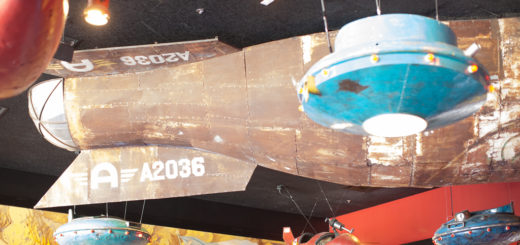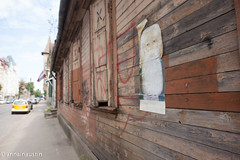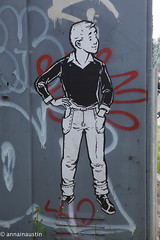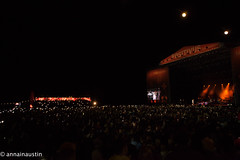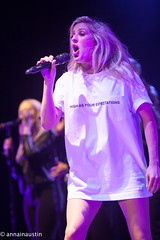SLOW at Nashville Film Festival
To be a person who has seen movies, or has in fact lived in late 20th-early 21st century culture, is to have seen romantic comedies. They’ve been with us as long as there have been movies; most film critics and cineastes would agree that 1934’s Best Picture Oscar winner, It Happened One Night, is Canon with a capital C, and it’s a rom-com through and through. Hardboiled journalist falls for ditzy Claudette Colbert, and she teaches him to lighten up and enjoy life. It all happened not just one night, but decades before my fellow critic Nathan Rabin existed and would coin the phrase “Manic Pixie Dream Girl” to describe characters just like Colbert’s. And even if that film weren’t the Aristotelian form of a rom-com, it would still feature Clark Gable nonchalantly munching on a carrot, a scene remembered six years later by an animator named Robert McKimson.
Say, however, that you took the comedy out of a romantic comedy. That’s fine, you still have a love story, and those run rampant in cinema as well; there was even a film in 1970 simply called Love Story, and it’s canonical too, even if its most famous line is complete bollocks. But what would happen if you made a love story with all the usual elements, but took out one key ingredient–an ingredient that isn’t even always explicit or depicted on screen, but we all know it’s there, and the characters are definitely expecting it whether they say so or not? The answer to that is Slow, Marija Kavtaradze’s latest film and Lithuania’s submission for the 2023 Oscar for International Film.
Slow tells the story of dance teacher Elena (Greta Grineviciute) and sign-language translator Dovydas (Kestutis Cicenas). When we first see Dovydas, he’s signing for an all-girl power pop band, signing a generic love song. (We see him with this band two or three times, never quite connected to the narrative, like a Greek chorus.) He actually meets Elena when he comes to her dance studio, where he has been hired to sign for a dance class composed entirely of deaf people; they’re learning new moves from her before an excursion to/contest at a seaside camp. What sticks out about this scene is that the class, having no need for it, is an entirely music-free dance class, the only sound being the unusually loud sound of the dancer’s feet. I mention this partially because it’s among the notes I took, but also because I now realize it was a kind of foreshadowing–this is something we’ve seen before, but a common element is missing.
Elena and Dovydas experience an instant chemistry; Elena tells her friends that she feels that she’s known him forever. He invites her to his brother’s impending wedding, and she, after they decide to grab a beer together after the second class, invites him to her apartment, where she says “You’re not like anyone I know” and invites him to her bedroom. We all assume we see where this is going, as does Elena, but upon inviting him to her room, Elena learns that he is indeed unlike anyone else she’s known. Dovydas is among the small number of folks in the world who identify as asexual, and discloses this to Elena, since he more or less needs to at this juncture. Unfortunately for him, Elena is among the regrettably large number of people in the world who react to such a disclosure awkwardly and terribly. Dovydas storms out of the apartment soon after.
And thus is the narrative tension of this movie established, thus is this movie’s central question asked: how does a couple navigate a romantic relationship when one person doesn’t want one of the core elements of a romantic relationship? The answer, as proffered in this film, is a commonplace if trite phrase: it’s complicated. Elena pursues a relationship with Dovydas, but also continues to see an ex-boyfriend, who suddenly (if intermittently) becomes a proverbial friend with benefits. She attends the wedding with Dovydas, where she learns why he learned sign language–the groom, his brother, is deaf, which means that the reception involves more music-free dancing. We don’t stay at the reception, because Elena and Dovydas don’t either, opting instead to sneak away and lay next to each other, holding hands.
As time progresses, there are also, despite Dovydas’s asexuality, sex scenes between the two, or at least partial sex scenes. Sometimes Elena initiates it, sometimes it’s Dovydas; at one point, it’s Doydas, but Elena, despite wanting it, stops him because she senses (correctly, as he admits the next day) that he was trying to prove something, trying to venture out of his comfort zone for her sake.
It’s interesting to see another culture’s take on sexuality in film; here in the prudish USA, we were amazed that an A-lister like Jennifer Lawrence had a full frontally nude scene in No Hard Feelings, while in Lithuania, Elena and Dovydas can have a fight when she realized he has masturbated overnight (he explains that, for him, it isn’t sexual).
This is not a film in which the romantic tension is wrapped up in a neat little package, and I have to assume that, in real-life versions of this story, there aren’t neat little packages either. There is, I assume, what there is in this film–a cycle of togetherness and distance. There are fights. There are times that Dovydas grieves because he can’t “be…the person you need”, as he says to Elena. There are times when they lay together on a hotel bed, and Dovydas says he’ll never stop caring, and Elena says she “never thought she’d feel like this.” There are times when Elena returns to the ex, and even times when she sleeps with total strangers.
The last time we see Dovydas, he’s signing for the power-pop group again, performing a song called “What Once Was And What Will Be” (it’s a catchier title in Lithuanian), and, well…we know what was, but what will be? That’s not spelled out here, and it’s a wise choice. I say it’s wise because I find myself wanting to know more about asexuality now, about how these things are negotiated. Film can readily function this way, can easily serve as a window into different worlds, and it does here. I expected a typical love story, and was pleasantly surprised by what I got. We all know the love story. We don’t all know this story.

